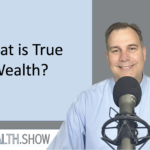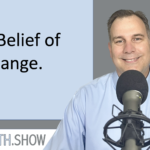Money Mindset
In today’s post, I want to begin a series about mindset, specifically money mindset. And in this post, I really want to talk about why it’s important that we understand mindset and what we can do a little bit about and how it impacts our money.
Mindset essentially consists of the beliefs the biases, the perceptions, the opinions, and the viewpoints that we have towards something. And if you think about it, different people have different perspectives of a whole bunch of things.
I heard this story one time of a guy asking another guy, “What’s an elephant look like?” And the guy says, “well, there’s this long nose that comes out of his front. He has some really big ears, and there’s these ivory tusks that come out of his face.” And the other guy says, “that’s funny. That’s, not what I see when I see an elephant.” He says, “what do you see?” He said, “I see, this grayish big round thing with this tail coming out.” And the other guy says, “well, do you not see the two tusks coming out?” And he says, “no, there’s no tusks here.” And he says, “do you see any eyes?” “No, I don’t see any eyes.”
The reality was, you have two different people on two ends of the elephant one’s looking at it straight on, the other one’s looking at it from the rear, obviously seeing the backside of the elephant. The simple illustration is the idea of two people can be looking to the exact same thing, but based upon their perspective, their viewpoint, they could see different things.
I heard a story one time of a little boy who got on the airplane, and he was the first one to come on the plane. He came into that first row and squatted down and put his hands under his chin and said, “oh, wow.” Because He saw this big full airplane and thought, wow, this is great, this big, huge thing. And he was elated about it. Another guy got on the same plane a little bit later and he had all the way in the back seat, and he got to that front and said, oh, I have to go all the way to the back. Two different perspectives of the exact same thing (looking down the aisle of the plane).
There’s this thing in finance called the immigrant advantage. An immigrant comes to America and sees all this opportunity, all this freedom, all capitalism and democracy and all this opportunity to go build something in their life compared to the country that they came from that maybe was war-torn, or regulated or restricted in, due to the nature from their governments. They come to America, and they see, “wow, what a great opportunity.” Whereas other people who are born here, all they see is the things that’s wrong with it. “The little man can’t get ahead”. The doom and gloom. The inequality. All the pressures that to keep the “little man down”. Things like that. Two people view the exact same thing, completely different.
The Belief Cycle
Why is mindset important? The reality is that mindset is our beliefs which drive our actions, which then drive our behaviors and the results in outcomes and evidence. If you think about this chart of beliefs, with a circle that then drives actions, which then drives results or, behaviors and outcomes, and then evidence. And it’s circular because when you get that evidence of those, the actions from the results that then reinforce the beliefs, and it becomes circular in nature.
The evidence, the results, and the outcomes are all driven from the actions. Which is where most people start when they work on self-help change or trying to improve something like diet or health or relationships or even money, they start with the actions piece.
And the problem with that is you end up self-sabotaging. You start doing something for a while, but then it gets hard because change is hard and you don’t see the results that you want. And then your belief says, “I knew this wasn’t going to work”. And you stop.
The evidence comes around, reinforces the belief of it’s not going to change. And you stop the actions. Actions also have impacts or blockers, or obstacles. You don’t control all the actions. You don’t control all the actions that you do, but you can have complete control over your beliefs.
You have complete control over your mindset. No one can stop you from thinking the way you think. And no one can make you think the way you think, except for you. It’s the one area of that circle of beliefs, actions, outcomes, or results and evidence that you have complete control over. You might try to do something with, health for example. But it might not work. Or you might hurt yourself. Or you might injure yourself. That’s an outcome. That outcome might inhibit things, but you have complete control over beliefs.
Working Inside Out
James Clear in his book on Habits, Atomic Habits, it’s a great book if you haven’t read it, says that all habit change starts with identity change. You have to start inside and work out. Somebody says, I am a runner. They have to have the mindset and the identity that I’m a runner.
Then they start going about running. Someone who has a good marriage has to start with the identity or the perspective or the value of having a good marriage. Then that manifests itself out and their marriage improves or gets better. All habit change starts with identity. It starts on the inside, inside the brain, As a man thinketh, so is he!
This is illustrated by the story, maybe you’ve heard of it, of Roger Banister and the four minute miles. For hundreds of years, people didn’t think that a human could run a mile sub-four minutes. They just thought it was physically or mentally impossible. Some doctors went on to even state that if, if you did try to run a 4-minute mile, your heart couldn’t take it and it would explode or go into cardiac arrest.
For many, many decades, no one could run a sub-four minute mile until one day Roger Banister did it. He came in maybe like 3 58 or whatever, and it revolutionized the running world. Then all of a sudden, within that same year, by year end, 20 to 30 other people also ran a sub four-minute mile. Why?
Because one guy did it, therefore others believe that it could be done. Really, it’s that principle that we want to carry over to money. Other people have done it; therefore it can be done.
Money Beliefs
When you think of money, what beliefs do you have about money? Do you think money’s good? Do you think money’s awesome? Do you think money’s bad?
When you see a wealthy person, do you think of them as evil, as a crook, or as someone who helped the marketplace and served a lot of people. What do you perceive when you see someone who’s maybe homeless or begging on the street? Do you see them as lazy, as unproductive, of making bad choices with their money?
What do you see when you look at your bank account? What do you see when you look at your investments? What do you think about when you think about money? And here’s an even more interesting question. Where did those beliefs that you have come from?
Did you consciously say, this is how I’m going to believe about money? Or is it like most of us, it’s unconscious, it’s unintentional, it Just kind of came in through our environment or through our experiences?
Where did those beliefs come from? Most of the time they’re not intentional thoughts. Most of the time they’re not conscious beliefs, they’re just beliefs that we have.
Here’s another question. The beliefs that you have about money, do they serve you? Are they empowering beliefs? Or are they disempowering beliefs?
Are they beliefs that are advancing you in your financial journey and your life? Or are they hindering you? How are they serving you?
The Best Belief
Here is the best belief that you can have. When it comes to beliefs in general and specifically about money. The best belief that you can have is that you can change your beliefs. Because if you can change your beliefs, you can change your actions. And if you can change your actions, you can change your financial future.
Like we talked about in the post on What is True Wealth, if you can change your financial future, you can change your life, you can change your marriage, you can change your children, you can change your community, you can change purposes and causes that you are passionate about, you can change your legacy. But it all starts with beliefs.
In order to change your life and to change your money, you have to believe that you can. And if you don’t have the belief that you can change that, you’re going to self-sabotage, you’re going to start to make some progress, but then recede back. And beliefs, are completely up to you.
You get to decide what you believe about money and about finances. Over the next couple posts, we’re going to talk about different aspects of money mindset that hopefully are going to be helpful to you.
If you think about from a computer perspective, we’ll try to reprogram your mind because while you probably have some beliefs that are good when it comes to your money, but you probably have some that are bad, that are disempowering, that are limiting you, that are restricting you, that are constraining you and those beliefs were not put there consciously by you.
Just like a computer program, we are going to take out the old, update and hopefully put in a new.
I hope this is helpful for you. If you have any questions regarding this, please feel free to reach out and ask.
And until next time, hope you have a great day.


